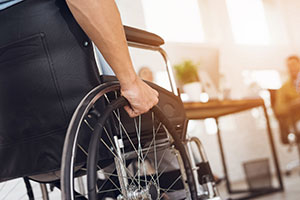A new suit filed in California district court claims that the California State Bar discriminates against attorneys with mental disabilities by requiring them to present expert witnesses to attest to their condition when they are facing discipline.
The Requirement
The Rules of Procedure of the State Bar of California outlines ten mitigating factors that a respondent may rely upon in disciplinary proceedings. Standard 1.6(d) specifies that “Mitigating circumstances may include:…(d) extreme emotional difficulties or physical or mental disabilities suffered by the member at the time of the misconduct and established by expert testimony as directly responsible for the misconduct, provided that such difficulties or disabilities were not the product of any illegal conduct by the member, such as illegal drug or substance abuse, and the member established by clear and convincing evidence that the difficulties no longer post a risk that the member will commit misconduct.”
The Lawsuit
On June 24, 2021, Michael Potere filed a lawsuit against The Board of Trustees of the State Bar of California and Donna S. Hershkowitz, the Interim Executive Director of The Board of Trustees of the State Bar of California.
Potere is disabled according to the definition provided by the Americans with Disabilities Act, which defines disability as “a physical or mental impairment that substantially limits one or more of the major life activities” or the individual in question and “mental impairment” to include “any mental or psychological disorder, such as…emotional or mental illness.” Potere has been diagnosed by numerous medical professionals as suffering from depression or major depression.
Potere claimed that he was harmed by Standard 1.6(d) because he was financially unable to hire an expert witness in his California State Bar Court proceedings. Because he was unable to provide an expert witness, the Hearing Department and the Review Department both found that Potere failed to prove that his mental disability caused his misconduct.
In his suit, Potere claimed that Standard 1.6(d) discriminated against persons with disabilities because it is the only group of respondents who are required to use expert testimony to establish a mitigating circumstance. Additionally, the respondents would be required to provide that expert witness at their own expense.
Potere points out that California is the only state that requires disabled respondents to hire an expert witness to prove that they have a disability. Every other state either follows the ABA Standard 9.32(i), which requires only “medical evidence,” or has no evidentiary requirement at all.
Potere argues that Standard 1.6(d)’s heightened evidentiary burden for disabled respondents violates their constitutional right to due process and equal protection, along with their right to be free from discrimination based on their disability pursuant to the American with Disabilities Act.
Potere brought the lawsuit on behalf of himself and those similarly situated. He asked for the court to issue a declaratory judgment that Standard 1.6(d) violates the due process and equal protection clauses of the U.S. Constitution and violates Title II of the Americans with Disabilities Act. Potere also asked the court to permanently enjoin The State Bar of California for using or enforcing Standard 1.6(d) as it is currently written.




